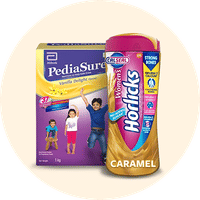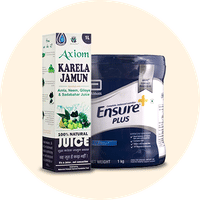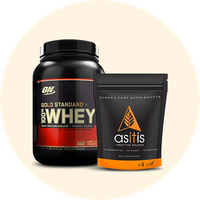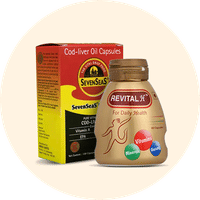Rs.231for 1 strip(s) (10 capsules each)
Composition FOR Neuroprime Plus
Alpha Lipoic Acid(100mg),Benfotiamine(150mg),Inositol(150mg),Methylcobalamin(1500mcg)food interaction for Neuroprime Plus
alcohol interaction for Neuroprime Plus
pregnancy interaction for Neuroprime Plus
lactation interaction for Neuroprime Plus
food
alcohol
pregnancy
lactation
Neuroprime Plus Capsule may be taken with or without food.
None
None
CAUTION
It is not known whether it is safe to consume alcohol with Neuroprime Plus Capsule. Please consult your doctor.
CONSULT YOUR DOCTOR
Information regarding the use of Neuroprime Plus Capsule during pregnancy is not available. Please consult your doctor.
CONSULT YOUR DOCTOR
Information regarding the use of Neuroprime Plus Capsule during breastfeeding is not available. Please consult your doctor.
CONSULT YOUR DOCTOR
SALT INFORMATION FOR Neuroprime Plus
Alpha Lipoic Acid(100mg)
Uses
Alpha Lipoic Acid is used in nutritional deficiencies.
How it works
Alpha lipoic acid acts as a potent antioxidant (substance that protects against cell damage) by neutralizing the free radicals (waste products formed in the body during energy production) such as reactive oxygen and nitrogen species. Further, it initiates natural antioxidant processes in the body. It also maintains the levels of Vitamin E and Vitamin C in the body.
Common side effects
Nausea, Abdominal pain, Allergic reaction, Diarrhea, Vertigo, Vomiting
Benfotiamine(150mg)
Uses
Benfotiamine is used in the treatment of nutritional deficiencies.
How it works
Benfotiamine provides essential nutrients.
Common side effects
Allergic reaction, Gastrointestinal disorder, Nausea
Inositol(150mg)
Uses
How it works
Inositol
Common side effects
Limited data available
Methylcobalamin(1500mcg)
Uses
Methylcobalamin is used in vitamin B12 deficiency.
How it works
Methylcobalamin is a form of vitamin B12 that restores its level in the body thereby helping in treating certain anemias and nerve problems.
Common side effects
Decreased appetite, Diarrhea, Nausea, Rash
SUBSTITUTES FOR Neuroprime Plus
1 Substitutes
1 Substitutes
Sorted By
 Rs. 351.40same price
Rs. 351.40same price
Expert advice FOR Neuroprime Plus
- Food decreases the amount of alpha lipoic acid in the body; hence it should be taken on empty stomach about 1 hour before or 2 hours after consuming food.
- Do not take alpha lipoic acid supplements on your own and as a sole treatment for diabetes, complications of diabetes and other conditions in which benefit may be claimed, as these diseases require proper medical treatment.
Frequently asked questions FOR Neuroprime Plus
Alpha Lipoic Acid
Q. Is Alpha Lipoic Acid a vitamin?
No, Alpha Lipoic Acid is not a vitamin
Q. Is Alpha Lipoic Acid an amino acid?
No, Alpha Lipoic Acid is not an amino acid
Q. Is Alpha Lipoic Acid natural?
Yes, Alpha Lipoic Acid is natural as it is synthesized in the human body, and in a wide variety of foods from plant and animal source
Benfotiamine
Q. What is Benfotiamine?
Benfotiamine is a dietary supplement of thiamine. It is also known as Vitamin B1. The medicine is used in the treatment of low levels of thiamine in the body. It protects the body from conditions which are caused due to low levels of thiamine such as heart, brain and nerve disorders.
Q. What does Benfotiamine do?
Benfotiamine contains vitamin B1. This vitamin is needed to process carbohydrates, fat and protein in the body. Our body requires vitamin B1 to form the fuel the body runs on i.e., adenosine triphosphate (ATP). Benfotiamine provides the necessary dose of vitamin B1 which is used by nerve cells in order to function normally.
Q. Who all are more likely to have deficiency of vitamin B1?
The levels of vitamin B1 in our body decline with age, irrespective of medical condition. Deficiency is most commonly found in alcoholics, people with malabsorption conditions, and those eating a very poor diet. It is also common in children with congenital heart disease. Individuals undergoing regular kidney dialysis may develop severe vitamin B1 deficiency, which can result in potentially fatal complications. So, it is advisable that persons receiving dialysis should discuss the need for the use of Benfotiamine with their physician.
Inositol
Methylcobalamin
Q. What is Methylcobalamin?
Methylcobalamin contains vitamin B12. Vitamin B12 is an essential nutrient which is required by the body to make red blood cells and maintain a healthy nervous system. It is also important for releasing energy from food and using vitamin B11 (folic acid).
Q. Why can’t I get sufficient vitamin B12 from my diet?
You can get vitamin B12 from sources like meat, fish, eggs and dairy products. While people who are vegetarian or vegan may not get Vitamin B12 as it is not found naturally in foods such as fruits, vegetables and grains. Therefore, deficiency of Vitamin B12 is usually noticed in vegetarians or vegans.
Q. What happens if I have vitamin B12 deficiency?
Deficiency of vitamin B12 may cause tiredness, weakness, constipation, loss of appetite, weight loss and megaloblastic anemia (a condition when red blood cells become larger in size than normal). It may also lead to nerve problems such as numbness and tingling in the hands and feet. Other symptoms of vitamin B12 deficiency may include problems with balance, depression, confusion, dementia, poor memory and soreness of the mouth or tongue.



















